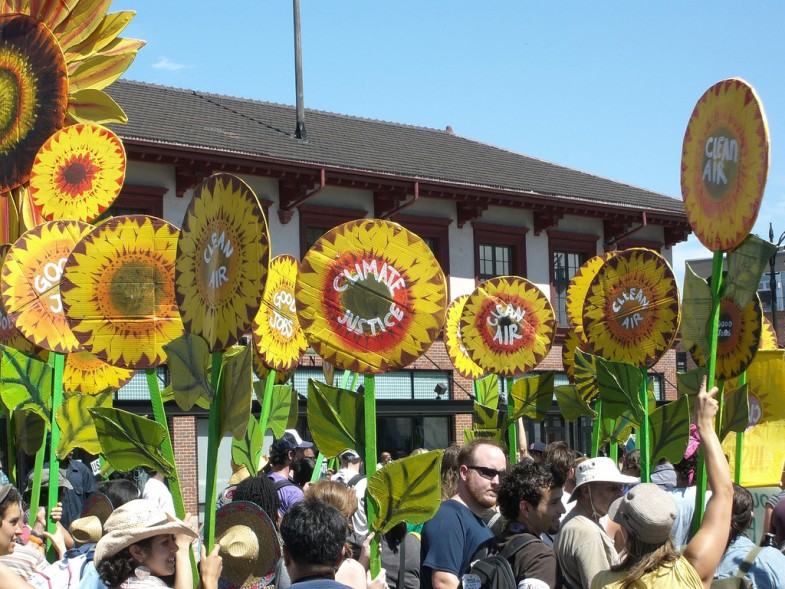On the Commons is calling for a People’s Movement Assembly (PMA) to identify, discuss, and commit to strategies for reclaiming our commons. We believe the commons are the essential natural, social, and cultural resources of our communities—many of which are rapidly being destroyed. We can claim, protect, enhance, control, and benefit from the shared abundance only through a direct relationship with those commons; so we believe new strategies for reclaiming our commons are vital both for the survival of our communities, and for achieving our goals of racial and economic equity.
As we create these commons-based strategies, we can learn from the long history of communal resource sharing, as well as from current examples of commons work. For this reason, we’ve called interested parties together to share stories and strategies for reclaiming the commons. Our goal is to learn from one another, address key challenges, and advance this important work.
PMA co-convening organizations:
What we face:
Many people recognize that we are in a bind—economically, ecologically, socially, and culturally. And yet the worldview driving old systems is still in place:
If unchallenged, this dominant worldview will prevent differing beliefs from being accepted and lead to false solutions that fail our communities.
Avoiding or reducing the impacts of extreme marketization—which leads to privatization, ecological depletion, radical inequities, etc.—is important, but insufficient. We must simultaneously imagine a life-sustaining future and create tangible paths that will lead toward that vision.
While there is no simple answer, we need a mode of social change work that has enough depth to offer real and inspiring solutions to the crises we face, and enough breadth to link the many like-minded efforts in common cause. We need an approach that unleashes the co-creative potential in our communities to invent the necessary solutions.
Commons rising:
Establishing and protecting the commons has been a critical tool for those seeking greater social and economic equity. The commons is rising now as a way of thinking about our future, because it has a history of real resource sharing practices and libratory politics. At its core, the commons asserts that communities have an equitable claim to many forms of natural and social resources, and play a critical role in the decisions about those resources.
Strategic movement challenges and the commons:
When we approach a resource in our community as a commons, whether it is a natural resource (such as water and land) or a social resource (such as transit, libraries, and healthcare) or a cultural resource (such as public space and airwaves), we are already putting different questions and assumptions on the table.
• What are those questions and how could they change the focus of our organizing?
• What does the idea of the commons add to our organizing that otherwise has no name or gets lost?
A big shift occurs when we move from believing that something is a commons to claiming it for the community.
• What are we doing to help our communities see, name, and claim their commons?
• What are the strategies and structures that allow us to have real power in relationship to our commons resources?
• What are we likely to come up against, and how will we prepare for those barriers?
The commons and related community resource sharing practices are not new: they’ve existed across many cultures and have often been kept alive by those excluded from mainstream systems.
• How can we honor these legacies and their wisdom as we foster a commons revival?
All of us seeking a just and life-sustaining future lose when powerful ideas like the commons are co-opted, misused, marginalized, or suppressed in our collective imagination.
• How can we stand against the hijacking and misuse of the language of the commons, and clearly align our work with the larger movement goals of racial justice, ecological justice, human rights, and sovereignty?
The many commons-based community efforts emerging today will play a key role—as long as they become connected to a bigger vision.
• If we can imagine these efforts as part of a body of work to reclaim our commons, can we also strategically link them to one another and to a broader goal of social transformation?
Call for a People’s Movement Assembly
We believe a commons revival will require persistence. Since so much stands in the way of the commons, intentional strategies to animate and support commons work are necessary. We can learn a great deal from one another’s efforts to reclaim the commons in our communities, and in doing so, we will also open the door to greater strategic alignment and collaboration.

